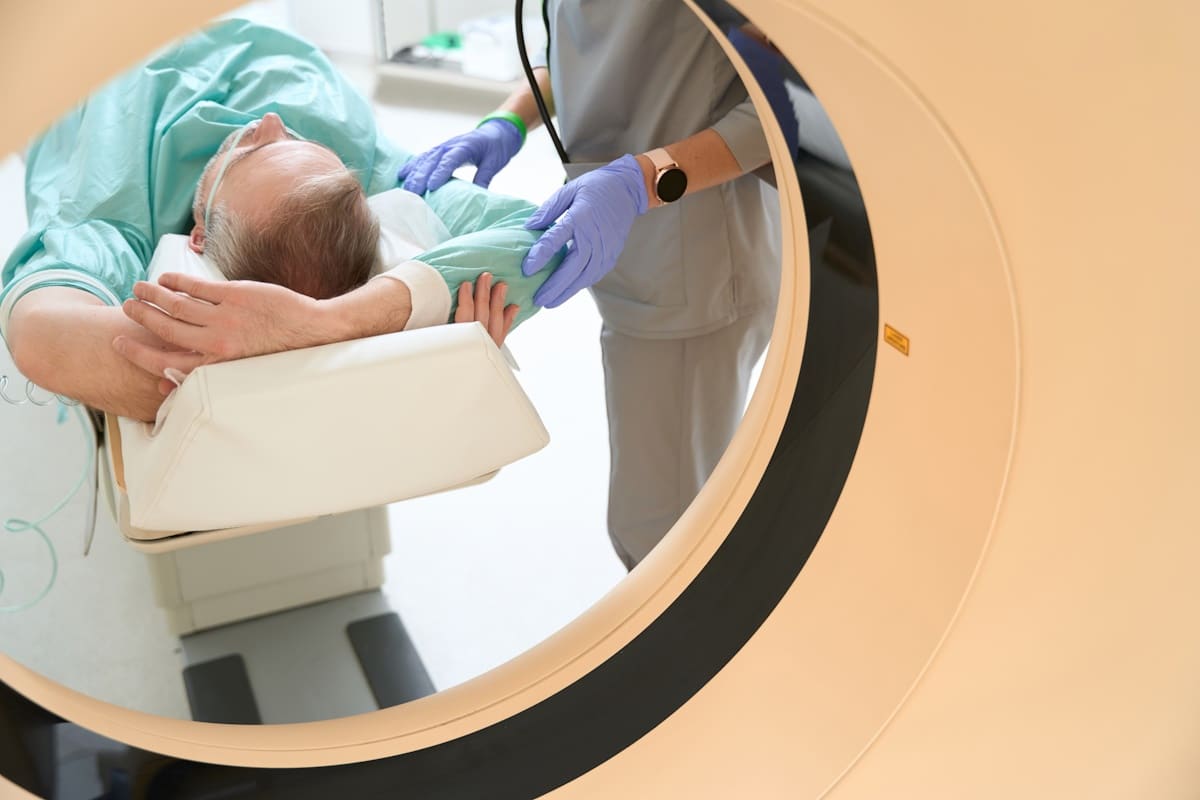Ensuring men have access to the most accurate and advanced diagnostic tools for prostate cancer detection is paramount. Striking the balance between traditional methods like ultrasound-guided biopsy and newer, more precise techniques is crucial in providing men with optimal diagnosis and treatment.
Consider this common scenario: A man undergoes PSA testing, revealing elevated levels. Advised to undergo a standard ultrasound-guided biopsy, he submits to the procedure, which takes twelve prostate samples indiscriminately. However, the biopsy results return negative for cancer. Relieved, he resumes his life. Yet, months or years later, he experiences urinary difficulties and sharp pains, leading to a diagnosis of an enlarged prostate. Subsequent MRI fusion biopsy reveals advanced prostate cancer in an unexpected location, prompting immediate treatment, potentially saving his life.
Why MRI fusion biopsy is superior as a prostate cancer diagnostic tool
Early detection is pivotal in prostate cancer survival, not only increasing the chances of cure but also preserving quality of life. MRI fusion biopsy emerges as a superior method for prostate cancer diagnosis, offering three key advantages:
Firstly, MRI fusion biopsy integrates information from both MRI and ultrasound imaging, addressing the limitations of traditional biopsy methods. By combining a multiparametric MRI with real-time ultrasound imaging, doctors can precisely identify suspicious areas for biopsy, eliminating the need for random sampling. This enhanced clarity and precision facilitate the detection of previously unseen tumors, even in inaccessible tissue, improving diagnostic accuracy significantly.
Secondly, MRI fusion biopsy accurately identifies the location, grade, and size of prostate cancer, crucial for determining optimal treatment strategies. It enables the detection of aggressive tumors that may be overlooked by standard methods, empowering physicians to tailor treatments to individual patients. Recent research suggests that MRI alone may help differentiate low-grade from higher-grade cancers without the need for immediate biopsy, potentially sparing patients unnecessary procedures.
Lastly, MRI fusion biopsy reduces the risk of erectile dysfunction and urinary incontinence associated with traditional biopsies. Mapping tumor location and extent aids in identifying candidates for nerve-sparing procedures to preserve erectile function and selecting continence-preserving techniques, thus improving patients’ overall quality of life.
Final thoughts
This groundbreaking technology offers new hope in the fight against prostate cancer. Covered by most health insurance plans, MRI fusion biopsy presents an attractive option for reducing unnecessary medical interventions. While still relatively new, mounting evidence underscores its efficacy, providing men and their families with confidence and healthcare providers with cutting-edge tools to detect and target suspicious prostate tumors effectively.
Dr. David Samadi is the Director of Men’s Health and Urologic Oncology at St. Francis Hospital in Long Island. He’s a renowned and highly successful board certified Urologic Oncologist Expert and Robotic Surgeon in New York City, regarded as one of the leading prostate surgeons in the U.S., with a vast expertise in prostate cancer treatment and Robotic-Assisted Laparoscopic Prostatectomy. Dr. Samadi is a medical contributor to NewsMax TV and is also the author of The Ultimate MANual, Dr. Samadi’s Guide to Men’s Health and Wellness, available online both on Amazon and Barnes & Noble. Visit Dr. Samadi’s websites at robotic oncolo gy and prostate cancer 911.


